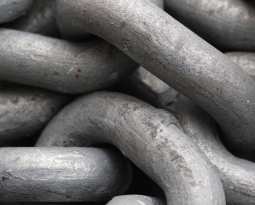Less food waste = more good food, and more money
When bananas get soft, I was always taught to put them in the freezer. They’re great in smoothies or even as healthy ‘ice cream’. Spoiling apples… maybe a pie? But moldy bread or off milk would go straight in the trash, and it feels like a massive waste of both food and money.
I’m not the only one concerned about waste. U.S. retailers are throwing out about eight million tons, or $18 billion worth, of wasted food each year. Fresh food is dynamic, and selling it is an enormous challenge that plagues even the biggest and best companies. Why? The trend for healthy eating (a.k.a. fresh fruit, vegetables, organic meat and dairy, freshly baked bread) is massive. But, these foods spoil fast and don’t store well. They vary in quality, taste and shelf life each season, and so does consumer demand, meaning it’s hard to know when they’ll sell best. They also don’t come with printed barcodes or expiration dates, so grocers often manually check their stock, a labor intensive job complete with human error.
So, what happens when selling fresh food is a must, but not at all easy? The result is stores ordering too much, or at the wrong time, and wasting both fresh food and money.
Afresh saw this issue, and decided to do something about it (other than making banana smoothies). The San Francisco based startup has developed AI technology that optimizes the fresh food supply chain. It’s built specifically to identify and analyze the perishability, quality and seasonality of fresh produce. The aim is to eliminate food waste, improve its partners’ profitability, and make fresher, healthier food more accessible.
So, how does the tech work? Firstly, staff input inventory into Afresh’s systems. Then, the machine learning platform uses this data, combined with an enormous amount of background data, to predict a number of probable future events. From this, it can recommend how much stock should be ordered and when. Over time, the algorithm can make larger predictions. The company is currently working on adding more insights into the tech, such as recent weather conditions near certain farms, and how this will affect the product and its sales. A number of stores are already trialing the AI tech and have seen great results; most stores have cut their food waste in half.
And for those who aren’t grocery giants, and aren’t overly concerned with the money, it’s also doing the earth a load of good.
Are you developing technology to reduce waste? Did you know your R&D experiments could be eligible for the R&D Tax Credit and you can receive up to 14% back on your expenses? To find out more, please contact a Swanson Reed R&D Specialist today or check out our free online eligibility test.
Who We Are:
Swanson Reed is one of the U.S.’s largest Specialist R&D tax advisory firms, offering tax credibility assessments, claim preparation, and advisory services. We manage all facets of the R&D tax credit program, from claim preparation & audit compliance to claim disputes.
Swanson Reed regularly hosts free webinars and provides free IRS CE and CPE credits for CPA’s. For more information please visit us at www.swansonreed.com/webinars or contact your usual Swanson Reed representative.

















